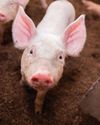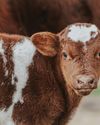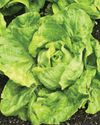
Climate and market changes mean hobby farmers need to proactively diversify their revenue streams. One way to do that is to add alternative livestock to your farming practices.
Before selecting any livestock addition, do your homework to learn more about the animals, their care requirements, shelter, fencing and veterinary needs. You may want to explore the investment it will take to become involved as well as whether you will need special licenses or permits.
If you’re alternative livestock curious, take a look at these options.
DONKEYS
Highly intelligent, generally gentle and sociable, versatile and easy to maintain. Donkeys offer benefits to hobby farms as guardians or companion animals for small herds or flocks. Trained, they can be ridden, handled for 4-H or put to work in therapeutic roles on behalf of complex human conditions such as autism and Asperger’s.
CARE & FEEDING: Donkeys thrive on a high fiber, low protein diets obtaining most of their nutrition from a variety of mixed woody shrubs and grasses. Efficient digestion means these animals only require 6 pounds of forage per day. Overall, they need 1⁄2 acre per animal is for grazing. (Caution: Lawn cuttings and unboiled linseed is toxic to donkeys in addition to moldy foodstuffs. It’s important to research your local plants prior to adding a donkey or donkeys to your operation.)
VETERINARY CARE: Donkeys typically follow the same vaccination schedule as other equine which varies depending upon locale. They are susceptible to the same illness that affect horses including equine herpes virus, strangles, rabies, tetanus and African horse sickness. They will need annual dental care as well as hoof trimming by a farrier.
この記事は Hobby Farms の July - August 2024 版に掲載されています。
7 日間の Magzter GOLD 無料トライアルを開始して、何千もの厳選されたプレミアム ストーリー、9,000 以上の雑誌や新聞にアクセスしてください。
すでに購読者です ? サインイン
この記事は Hobby Farms の July - August 2024 版に掲載されています。
7 日間の Magzter GOLD 無料トライアルを開始して、何千もの厳選されたプレミアム ストーリー、9,000 以上の雑誌や新聞にアクセスしてください。
すでに購読者です? サインイン

The RISE of Opportunist WEEDS
Be prepared to see increasing changes in weeds we fight, such as poison hemlock and poison ivy, and in the crops we grow.

LIVESTOCK Health
Prepare yourself for how to spot symptoms of illness in your farm animals so that you can get them help before it's too late.

CUT FLOWER Farming
If you're considering growing flowers for sale, brush up on these five key things to know before diving in.

WINTER Survival
Keep your land, animals and yourself in good shape this winter with this helpful advice.

COVERAGE CONCERNS
Avoid common insurance mistakes for rural and hobby farm businesses.

FARMER'S GUIDE Berries
Set the stage for tasty strawberries, blueberries and brambles with these soil-boosting garden tips.

Preconditioning CALVES
Follow our step-by-step guide to get more money for your calves.

Soil Conservation
Often, outside of having a specific problem that needs to be addressed, soil conservation isn't something every farmer readily thinks about. Yet conserving the soil should be at or near the top of every farmer owner or manager's list of concerns because absent the prevention of soil erosion, we have the opportunity for another dust bowl.

Year-Round Lettuce & Salad Mixes
It's easy to think of salad greens as just a spring- or fall-garden crop, but it's possible to enjoy freshly harvested lettuces, mustards and more from your own garden year-round.

Barn Improvements
Days are never long enough for a farmer. From dawn to well into the night, tasks arise that often require immediate action. Having to search for tools or equipment is an enormous time waster and incredibly frustrating when you can't find what you need, especially when you know you have it.